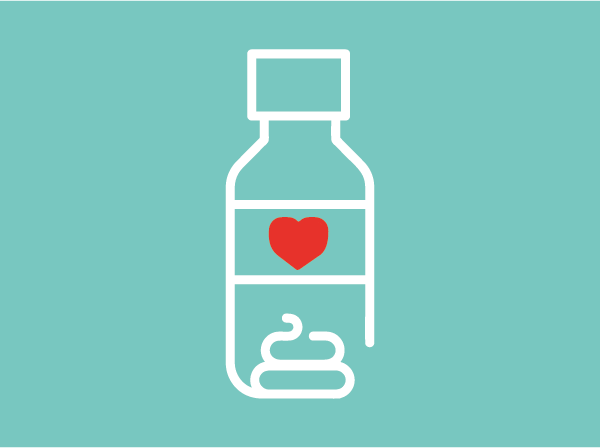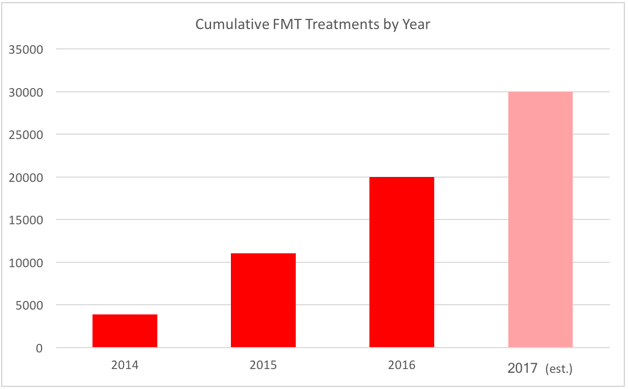OpenBiome celebrates 20,000th treatment for recurrent C. difficile infection
Press Release
Share
SOMERVILLE, Mass – OpenBiome, the first public stool bank, celebrated shipping its 20,000th fecal microbiota transplantation (FMT) preparation today for use in treating deadly Clostridium difficile (C. diff) infections. “We’re proud to have helped hundreds of clinicians help patients with recurrent C. diff infections, and we look forward to working with even more partners in 2017,” said James Burgess, OpenBiome’s executive director. “With more than 800 providers in 50 states, it’s clear that the medical community has taken ownership of this treatment.”
OpenBiome’s shipments increased from 7,141 treatments in 2015 to 10,997 FMT in 2016, including oral capsules and upper and lower GI formats. OpenBiome is projected to provide 30,000 treatments by November 2017.
In the four years since OpenBiome provided its first treatment, it has grown to support hospitals and clinics with more than 1,000 FMT preparations per month. More than 453,000 Americans contract C. diff infections each year, and 29,000 die. When antibiotics fail to cure patients after multiple attempts, FMT has been found to cure 85% of antibiotic-resistant C. diff infections.
Thanks to a growing network of providers, 97% of Americans live within a two-hour drive of a treatment center offering FMT. OpenBiome also supplies material for 47% of the open clinical trials of FMT in the United States, supporting research on the therapy’s potential for treating conditions including ulcerative colitis, Crohn’s disease, and irritable bowel syndrome.
“This field is expanding rapidly,” said Mark Smith, OpenBiome’s research director. “What was a fringe treatment just five years ago is now standard, and we’re just beginning to explore how human health can be advanced through microbiome-based interventions. It’s exciting to be part of this research.”
For patients who have suffered with C. diff, the impact of a successful FMT can be profound. As one patient wrote, “I am 51 today. I was 42 years old when I was first diagnosed with cancer and when the diarrhea began. I have a lot of living yet to do, living a life that I had thought was nearly over, and is now just beginning again. My life is beginning again because I had the opportunity to have a fecal transplant from a stranger who came to my aid.”
OpenBiome is a nonprofit stool bank and research platform founded in 2012 to expand safe access to FMT and to catalyze research. For more information about FMT treatment, providers, and research, visit www.openbiome.org.

